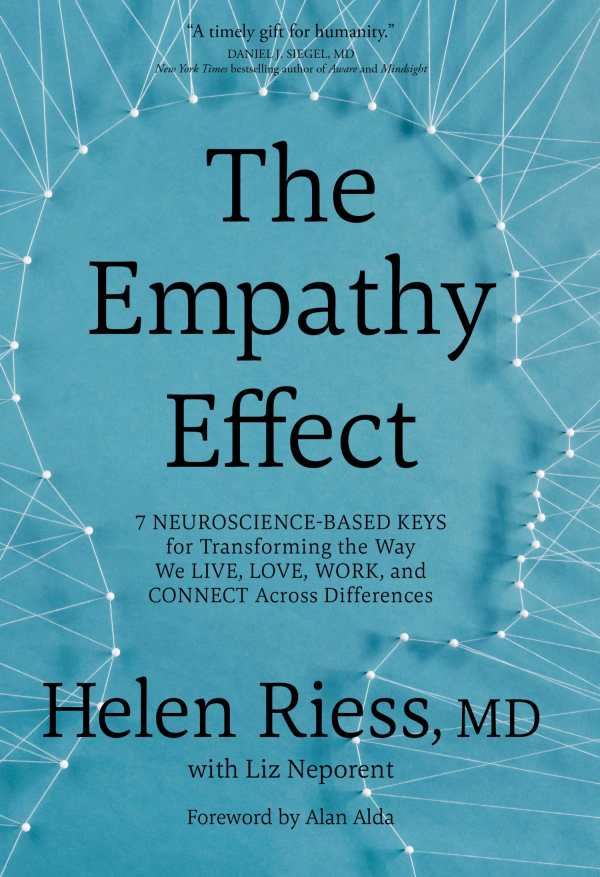The Empathy Effect
Seven Neuroscience-Based Keys for Transforming the Way We Live, Love, Work, and Connect across Differences
Empathy—the ability to feel deeply what another person feels—was long thought to be an inborn trait, but Dr. Helen Riess proves that life-transforming empathy skills can be taught. This comes as good news in these days when empathy and tolerance seem to be in short supply.
In The Empathy Effect, science and story come together to provide significant, surprising, and even scary insights into why the world is the way it is, including scientific studies showing an inverse relationship between power and empathy. Riess writes, “We are wired to help, yet those in the most powerful positions to help on a grand scale are often more preoccupied with personal power, helping the rich, and expanding their sphere of influence among their supporters than marshaling efforts to decrease suffering around the world.”
Furthermore, she notes, we are predisposed to favor our own “tribe,” which can have life-or-death implications for those seen as part of an “out-group.” Riess gives potent examples of how this mentality is being played out in American society today, to the detriment of all.
The book follows how empathy develops through a person’s life span and how it can be taught and enhanced at each stage—at home, in schools, in the workplace, and in the political realm. It also shows how empathy can be unlearned, with pointed examples of the negative effects of excessive screen time for the way we relate to each other. But there is hope: Riess points to the rise of the mindfulness movement that counters such effects, and affirms that everyone’s empathy levels can improve with training, with firsthand experience of the struggles that others face being especially effective.
Timely, informative, and compassionate, the book explains how empathy helps break down the barriers between “us” and “them,” expanding our boundaries and our caring.
Reviewed by
Kristine Morris
Disclosure: This article is not an endorsement, but a review. The publisher of this book provided free copies of the book to have their book reviewed by a professional reviewer. No fee was paid by the publisher for this review. Foreword Reviews only recommends books that we love. Foreword Magazine, Inc. is disclosing this in accordance with the Federal Trade Commission’s 16 CFR, Part 255.

